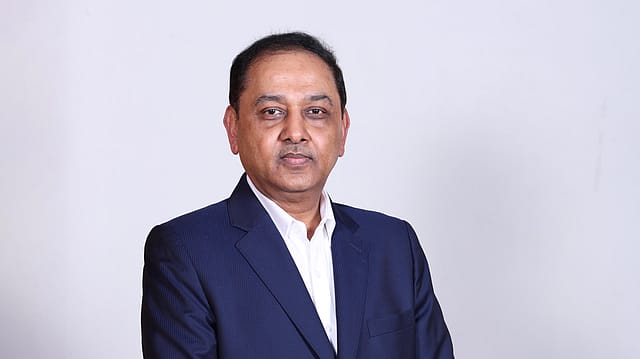Ashok Leyland in talks with Adani Group to deliver 2,000 electric trucks: CEO Shenu Agarwal
ADVERTISEMENT

Commercial vehicle manufacturer Ashok Leyland is in talks with Gautam Adani-led Adani Group to deliver around 2,000 electric trucks, according to the Chennai-based company’s managing director and CEO Shenu Agarwal.
The move could give a big boost to electrification plans of Ashok Leyland, which has sold only a handful of electric trucks so far.
“We have reached a stage where we can confidently say that we can commercialise alternative powertrains such as electric, hydrogen and LNG-powered vehicles. That’s why we have started selling EV trucks and LNG trucks. We will start hydrogen in a couple of years,” said Agarwal.
While nobody can forecast how many electric trucks will be sold by the end of the decade, Agarwal said it is important to now develop all the alternative powertrains.
Electric trucks, which cost roughly three times more than diesel, are currently being used by the mining industry.
India’s third-largest commercial vehicle manufacturer is betting big on battery localisation. The flagship company of the Hinduja Group plans to invest ₹5,000 crore over the next 10 years in battery manufacturing for both automotive and non-auto applications, including energy storage systems. The truck and bus maker has entered into a long-term partnership with China’s CALB Group to import cells. The company intends to start the production of battery packs in 2027.
January 2026
Netflix, which has been in India for a decade, has successfully struck a balance between high-class premium content and pricing that attracts a range of customers. Find out how the U.S. streaming giant evolved in India, plus an exclusive interview with CEO Ted Sarandos. Also read about the Best Investments for 2026, and how rising growth and easing inflation will come in handy for finance minister Nirmala Sitharaman as she prepares Budget 2026.
The whole supply chain of EVs is controlled outside India, said Agarwal. Batteries, which account for 40-50% of the total cost of an EV, are mostly imported from China. “In our diesel vehicles, the import content is 2%. In EVs, the import content is 65%,” said Agarwal.
“How can you build a sustainable mobility ecosystem by importing 65% of the content from outside in today’s geopolitical world where you don’t know about which ship would stop tomorrow or which order would attract duties,” asked Agarwal.
“We plan to localise battery ecosystem and we will not stop at battery, we will do something more and we will announce it later,” the Ashok Leyland MD and CEO said.
“There are two approaches: one is to go bold where once can lose the money invested because the technology is changing very fast and the other is a step-by-step approach, which is better,” he said.
Ashok Leyland first plans to produce battery packs in India and then work on an R&D centre for battery packs.
